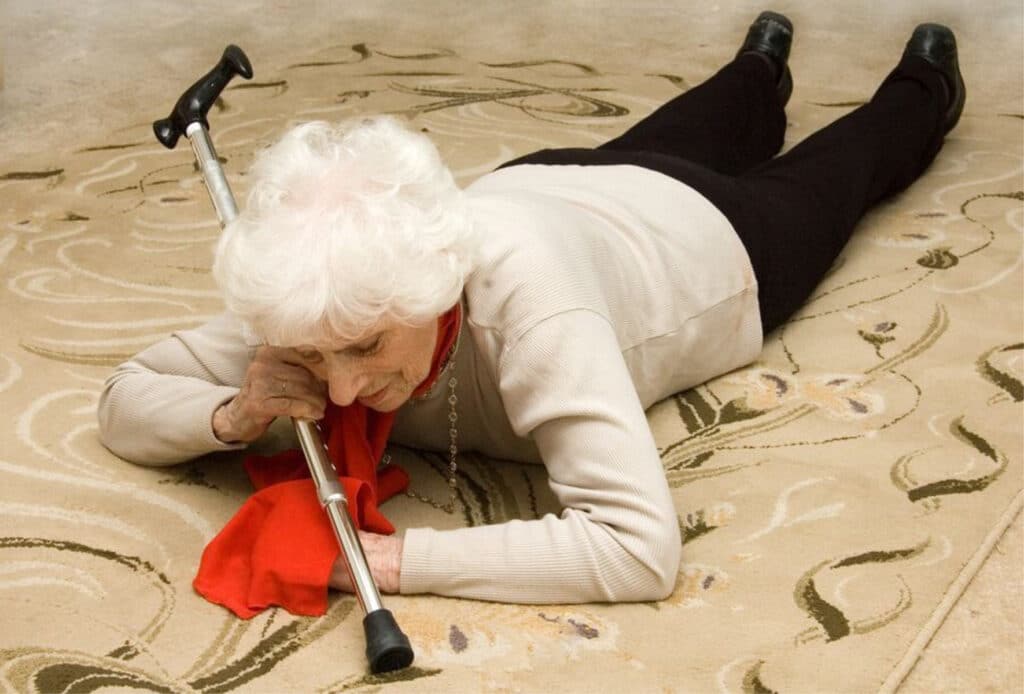Senior Care Tips: Seniors who have dementia tend to fall more often than those without it, and when they do fall, they tend to get more seriously injured than their cognitively healthy counterparts.
There’s no one reason why seniors with dementia fall, and although it may be a common occurrence, it’s not unavoidable. Understanding why seniors with dementia fall is an important step in preventing further falls and injuries. use the following Senior Care Tips
Senior Care Tips: Tracking Falls
It’s helpful to keep a log of the circumstances surrounding a senior’s falls, especially if they fall frequently. Take note of details such as:
- The date and time of each fall
- The location
- What the senior was doing when they fell
- The type of footwear worn at the time of fall
- Which medications were taken prior to the fall, and how long prior
By keeping track of details like these, it’s possible to find patterns that can shed some light on what may be contributing to the falls, and therefore, what can be done to reduce the chances of another one.
Medication Review
A senior’s medications – both prescription and non-prescription – can contribute to dizziness, lightheadedness, weakness, rushing to the bathroom, or other things that can lead to falling. When looking into reasons for falling, always look over a complete list of medications. The senior’s doctor or pharmacist should review the list and offer advice over any drugs – or combinations of drugs – that may be contributing. Sometimes it’s an issue with the dosage or the time of day the medication is taken.
Compile a medication list for your senior’s doctor or pharmacist to review. The list should include:
- The name of every medication, including over-the-counter ones, and ones that are taken only once in a while, as needed
- The dosage
- The time of day each medication is taken
- Doctor Consultation
The senior’s doctor should be notified of every fall, even if there’s no injury. Just a quick call to the office can keep the doctor up to date. They may want to see the senior to address the issue of falls, or you can ask for an appointment to discuss the matter. The doctor will look at which medical conditions may be contributing to falls, and may have some ideas for changing treatments to avoid future falls. The doctor can also order a physical therapist to assess the senior’s falling in depth.
Senior Care Tips: Physical Therapy
If physical therapy gets involved, they may come to your senior’s home to perform a home safety evaluation. They will look at the senior’s physical condition as well as the state of the home environment to find ways to improve the senior’s strength, balance, and safety. They may recommend different adaptive equipment, such as walkers, grab bars or transfer bars, or other aids that may make a big difference in the senior’s safety. Look for a physical therapist who is experienced with working with people with dementia.
Senior Care
Senior care services can offer a lot towards fall prevention in seniors with dementia. Senior care aids can help pick up clutter, or take a senior for walks or swims to keep them active and healthy. Senior care aides can help prepare nutritious meals and offer encouragement to drink enough to keep dehydration at bay. They can assist seniors to walk safely, and can even stay with them, helping them walk and transfer safely when they can’t remember to ask or wait for assistance. The above senior care tips can help with fall prevention, don’t forget to use them.
If you or an aging loved-one is considering Senior Home Care in Oak Brook, IL, please contact the caring staff at Suburban Home Care today. 630-964-9000
Sources
Risk Factors Associated with Falls in Older Adults with Dementia: A Systematic Review
There are several great reasons why Suburban Home Care® should be your choice for quality homecare. All of our Certified Nursing Assistants and Home Health Aides are screened, trained, bonded and insured.
Every family needs to be aware that almost every Homeowner’s insurance policy specifically excludes anyone working within your home. If the person you hire becomes injured while working for you, you will become personally responsible for all of their medical bills. This has left several families very vulnerable when their caregiver injured themselves at their home.
The potential to lose everything you have worked so hard to achieve seems an unnecessary risk. Every one of Suburban Home Care®’s employees are completely covered by insurance so you and your loved ones can relax knowing that if something unforeseen happens to your caregiver, they are completely covered by insurance.
- What Can Families Do When Seniors Don’t Want to Talk? - April 7, 2025
- SPRING SPECIAL! - April 4, 2025
- How Does Home Care Help Even Out Caregiving Responsibilities? - March 26, 2025



